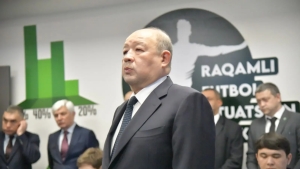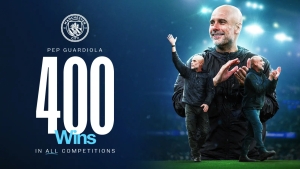Legionnaires limit: salaries increase, game quality does not change

A new restriction has been introduced. This was reported by Euro-football.ru.
More noise, more talk about "for the national team," more promises: now the youth will play, and agents will be left without income. But the question arises: how many times can one make the same mistake and show that this time it will be different?
Sports Minister Mikhail Degtyaryov announced the newly established restriction: "five on the field, ten in the application." First of all, this decision came unexpectedly.
Most RPL clubs were not prepared for this, given the transfer activities. During the peak of the transfer window, "Spartak" is acquiring another foreign player, while "Zenit" is buying players from South America.
At the same time, the Ministry of Sports is developing a plan for import substitution. This change will not affect the current season and will be gradually implemented starting from the next season, the minister says.
But what does "gradually" mean? Is it gradual to remove several legionnaires from the application within a year?
If there are 7-8 foreign players on the field in big clubs, it is almost equivalent to a major surgical operation. Many believe the limit is for the development of youth.
In reality, it is more about interests and connections. It’s not about stars, but about average players who have the right passport.
As a result of the new restriction, player prices will artificially increase, but the quality of the game will not change. Consequently, clubs will be forced to tighten their budgets and pay high salaries to average players.
The main obstacle to youth development is not the limit, nor the legionnaires. The problem is that decisions in the football sector are made behind closed discussions, while the infrastructure remains outdated.
There are very few children's football academies across the country. A good example is the "Krasnodar" academy, but it is also built on private funding.
Who benefits from this restriction? Not the youth, not the clubs, not the national team.
The main beneficiaries are the agents. As buyers decrease, the prices of local players rise.
Average players also benefit from this, as they get to play in the main squad. Officials will showcase their activities.
As a result, clubs remain under financial pressure, and the quality of the game declines. In practice, there have been limits before, but they did not lead to the development of youth.
They were mostly sent on loan, while big clubs attracted experienced players or players from other countries. If approached correctly, a financial incentive system could be implemented.
However, we prefer quantitative restrictions. A limit can be beneficial if implemented purposefully and well-planned, alongside the development of infrastructure.
Now, once again, a restriction is being introduced as a test. In the future, the situation is likely to change, and the new leadership may abolish the old restrictions.
As a result, everything starts over. In the meantime, average players are sold at high prices, agents profit, and fans lose interest.
Football remains as it is. Arman Tigranyants







